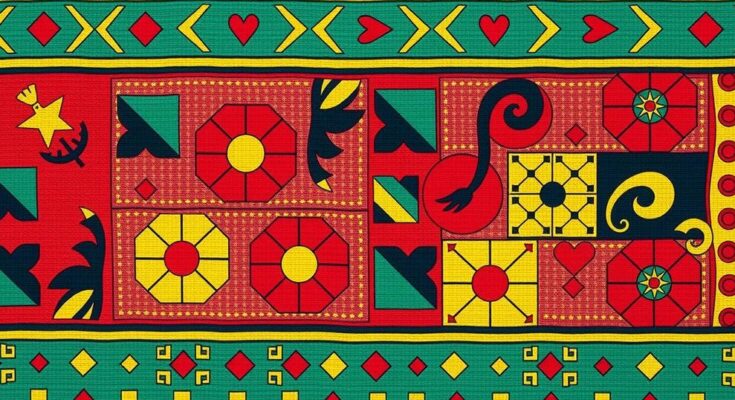Vice-President Constantino Chiwenga is gaining attention for his impactful use of vernacular language, resonating with Zimbabweans and shaping national discourse. His speeches boldly tackle issues like corruption, incorporating historical references to engage the public. Chiwenga’s rhetoric not only reflects the country’s struggles but also actively influences cultural and political conversations, emphasizing the power of language in shaping collective identity.
Vice-President Constantino Chiwenga, a central figure in the 2017 military coup that ended Robert Mugabe’s long rule, is garnering attention for his dynamic use of vernacular language. His public remarks resonate strongly with the Zimbabwean populace, permeating social media and daily interactions. Chiwenga is remembered not only as a military leader but also as a skilled orator whose memorable expressions shape the national discourse.
Chiwenga’s speeches, particularly his recent address at National Heroes Acre during the burial of Justin Mupamhanga, have captivated audiences. He publicly denounced corruption, stating, “Zimbabwe belongs to all of us. We must share its God-given bounty, share its bounty equally so no one — not even the weak, the widowed or the orphaned — are displaced or elbowed out by the strong in a mad rat-race to grab unmerited privileges. Corruption has to end.” His fervent and accessible rhetoric has struck a chord with many Zimbabweans.
In his speeches, Chiwenga revives historical terminology, referring to corrupt individuals as “zvigananda,” a term from the liberation struggle denoting opportunists. He stated, “Our Vision 2030 is for all of us, not those that you call mbinga. During the war, we referred to them as zvigananda (leeches): those who grow big tummies through ill-gotten wealth and questionable morals! Pasi nezvigananda [Down with leeches],” a phrase that has emerged as a potent rallying call against corruption.
His colloquial expressions resonate widely, finding a receptive audience in public discussions and reflections on current issues. Political analyst Lazarus Sauti noted, “VP Chiwenga is using statements that reflect and are in sync with the political, economic, and social climate in the country.” His straightforward admonitions against illegal forex trading have even entered everyday conversation, demonstrating the broad influence of his language.
At a recent rally in the Midlands ahead of the August 2023 elections, Chiwenga employed vivid metaphors, likening the Citizens Coalition for Change (CCC) to lice, asserting, “I have heard others here saying down with CCC; let me assure you that there is nothing that it can achieve. You see how we crush lice with a stone — you put it on a flat stone and then flatten it to the extent that even flies will not make a meal out of it.”
Media expert Mlondolozi Ndlovu highlighted Chiwenga’s unique style, stating, “Chiwenga belongs to the nationalistic movement, the old crop of nationalists. Though a military man, he was trained as a commissar during the war, and much of his language is very consistent with the discourses of that era.” Chiwenga’s linguistic choices bridge historical and contemporary issues, enhancing their relevance in today’s Zimbabwe.
As Zimbabwe confronts economic difficulties and political shifts, Chiwenga’s vibrant oratory continues to provoke discussion and contemplation. Whether viewed as authentic or as mere populism, his rhetoric holds significant influence, illustrating the enduring power of language in shaping a nation’s trajectory and the collective consciousness of its people.
In summation, Vice-President Constantino Chiwenga’s vibrant use of vernacular language has profoundly influenced Zimbabwean discourse. His ability to evoke historical context while addressing contemporary challenges fosters a strong connection with the public. Through his speeches, he has catalyzed conversations surrounding corruption and accountability, illustrating the significant impact of language in shaping national identity and political landscapes. As the nation faces ongoing transformations, Chiwenga’s rhetoric will likely continue to resonate with a populace yearning for change and empowerment.
Original Source: bulawayo24.com




